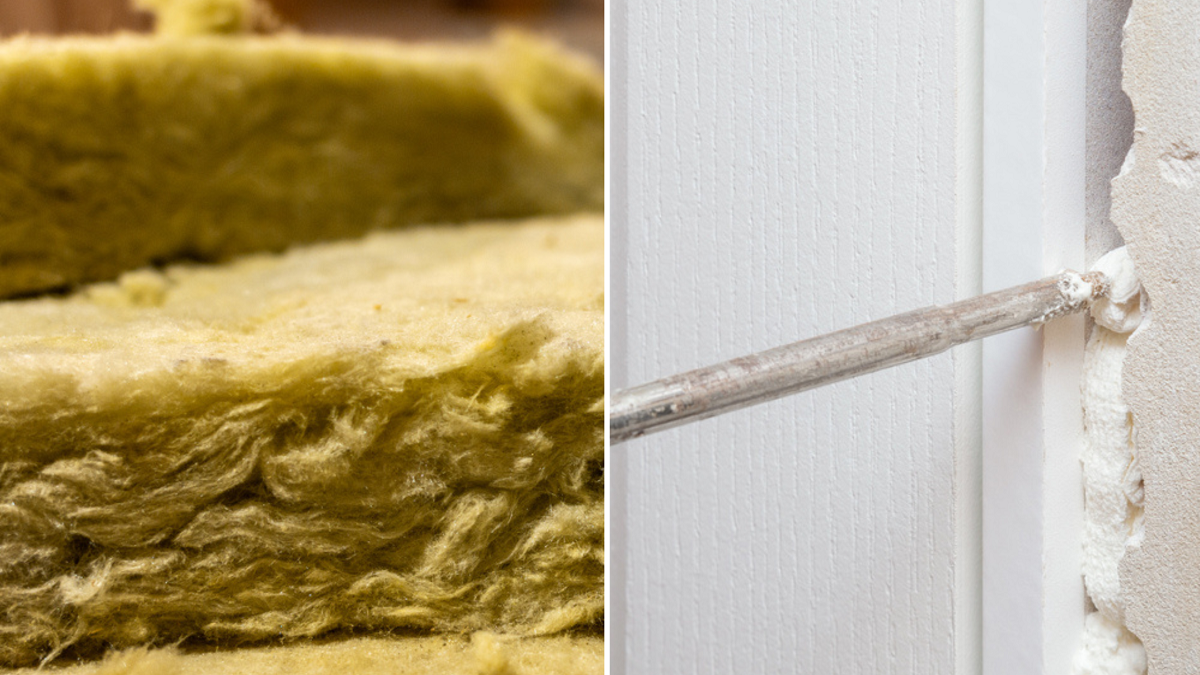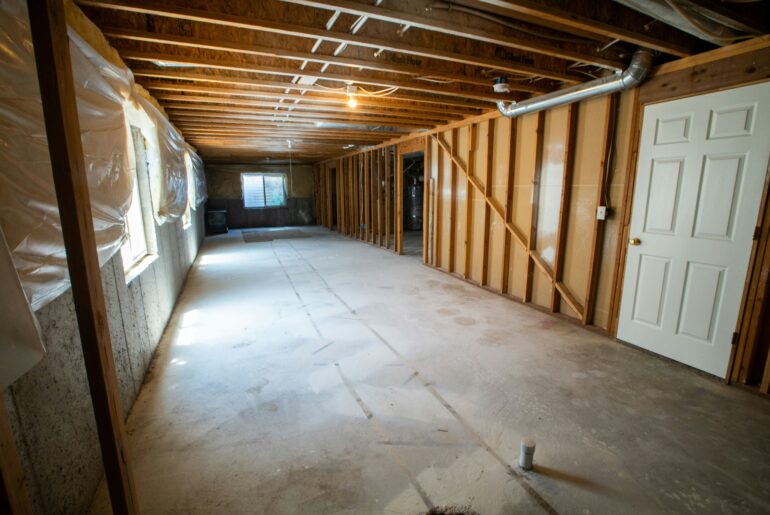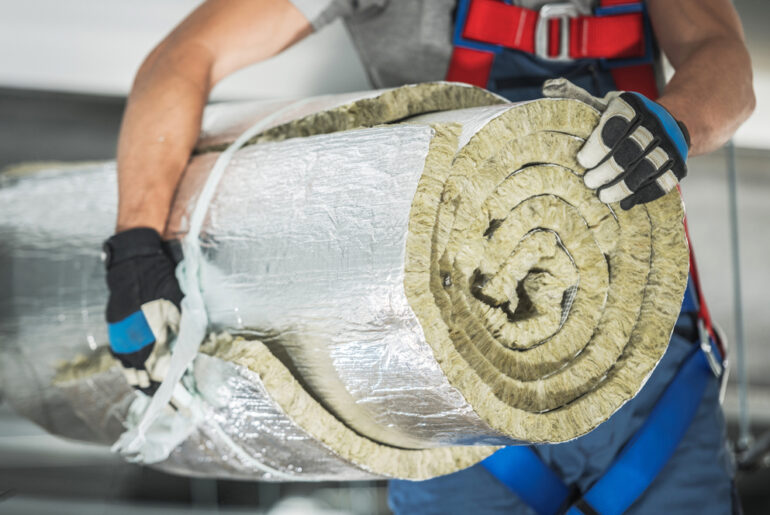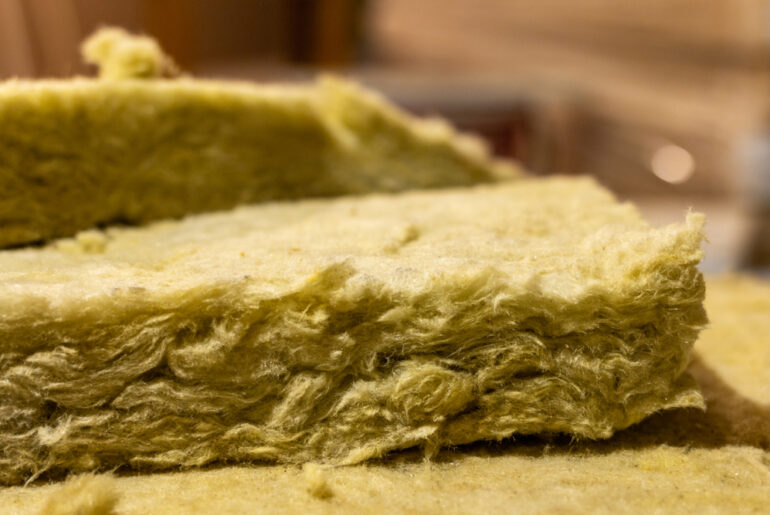In the modern age, you have plenty of options regarding what type of insulation to use in your home. You may have decided on spray foam insulation for your home, but is there a better option?
Rockwool insulation and spray foam insulation are both effective insulators in their own right, but both play particular roles better than the other. For example, Rockwool excels in hot, humid environments for a low cost, while spray foam insulation is more expensive but survives a more sizable variety of climates.
Which of these forms of insulation is best for you? How can you decide? Is one outright better than the other? If so, how would you know?
Choose the most effective form of insulation for your home with this handy guide to the differences between Rockwool and spray foam insulation.
About Rockwool Insulation
Rockwool insulation is a brand name for a form of mineral wool. Mineral wool consists of any fabric-like or fiber-composed material spun from earthen materials, such as minerals or rock.
Traditionally, mineral wool consists of various ceramics and slag. Rockwool, specifically, composes of basalt rock and recycled slag.
Rockwool insulation is cheaper and can pose fewer immediate health risks than spray foam, but is limited in its lifespan and use. Rockwool is excellent for soundproofing, but as an insulator, it lacks use in most climates as its R-value is lower- you will have to use more of it, and that price can add up quickly.
Consider relegating Rockwool to your unfinished surfaces inside your immediate living space, such as walls, ceilings, and floors, rather than attic usage.
Rockwool Advantages:
- Cheap. While the material cost is about 50% more expensive than fiberglass insulation, you can save money by installing it yourself.
- Soundproof. Rockwool is far more efficient at immediate soundproofing than some other insulating materials, including spray foam.
- Porous. Vapors can pass through Rockwool, which is an advantage for humid environments.
- Easy to install. You can easily install Rockwool yourself with the proper equipment.
- Heat resistance. Mineral wool can resist temperatures of up to 1200 degrees Fahrenheit.
Rockwool Disadvantages:
- Does not create an air barrier. Heat can easily escape Rockwool, especially since it’s usually available in unfaced batts, although Rockwool is available with foil or black facings upon request.
- Limited lifespan. Rockwool insulation has a shorter lifespan than current estimations for spray foam.
- Porous. If Rockwool gets too wet, its insulating properties can be further hampered.
About Spray Foam Insulation
Spray foam insulation is a popular and versatile form of insulation. There are two types of spray foam insulation: open and closed cells.
Spray foam insulation consists of polyurethane. As a chemical compound, it is toxic to inhale. If you do not want to spend extra time and money on personal protective equipment, consider hiring a professional installation team.
Open-cell spray foam is a flexible but water-permeable form of spray foam. With its pliable nature, open-cell spray foam can move with the house, preventing cracks that a sturdier insulation form might develop due to homes settling.
Closed-cell spray foam is the spray foam mixture that features a more rigid composition. Closed-cell spray foam is denser, more secure, less effective at dampening sound, and more expensive than open-cell spray foam.
Key Characteristics Of Spray Foam
- Variety of prices. Open-cell is cheaper while closed-cell is more expensive, giving you more options for prices.
- Mold-resistant. Open-cell spray foam may be water-permeable, but neither form is conducive to mold growth.
- Long-lasting. Spray foam insulation lasts up to a century.
- Toxic. Spray foam insulation may be carcinogenic with long-term exposure.
What Is Styrofoam?
Styrofoam is a popular brand of XPS, a rigid foam insulating material. While popular in arts and crafts, Styrofoam has a storied history with insulation.
In terms of R-value and insulating power, both forms of spray foam are far better than the rigid foam of Styrofoam.
However, all rigid foam insulations, including Styrofoam, are cheaper than spray foam.
Spray Foam vs Rockwool: Installation
Installation is one of the most significant factors in any insulating material.
Everybody loves a DIY project that they can knock out without professional assistance, but not every material is conducive to this approach.
Rockwool is easy to install yourself. The only special tools you will need are your preferred insulation anchors, and a serrated knife if you need to cut your Rockwool batts.
However, spray foam is not easy to apply yourself. The toxic, thick-layering nature of spray foam makes it a hassle and a health hazard to install yourself.
If you installing spray foam yourself, you need sufficient full-body protective gear and a dedicated spray rig.
Ultimately, Rockwool is far easier and cheaper to install than spray foam.
Spray Foam vs Rockwool: R-Value
Everybody wants insulation that stabilizes their home’s temperature; after all, this is the purpose of adding insulation in the first place. But which of these materials does it better?
As a measure of efficiency, Rockwool has a low R-Value, varying between R-3 and R-3.3 per inch thick, with products available between 6 and 7.25 inches thick.
Ultimately, Rockwool is an effective insulating material that excels in certain environments and underperforms in others.
In warm and humid environments, Rockwool excels at preventing heat from moving into the home and, when used in conjunction with an efficient HVAC system, fills it with cool air.
Additionally, Rockwool’s R-Value can drastically change due to water. If Rockwool gets wet, it becomes far less effective at maintaining temperature.
On the other hand, spray foam is a highly efficient temperature blocker that is effective in several climates.
Closed-cell spray foam has an R-value of R-7 per inch, while open-cell spray foam fares at R-3.8. Closed-cell foam typically has layers of 4-5 inches, while open-cell has 6-10 inches.
In terms of efficiency and R-value, either form of spray foam insulation is better than Rockwool.
Spray Foam vs Rockwool: Costs
Nobody likes spending money. Unfortunately, sometimes the most expensive option is the best one for your home.
Rockwool is relatively cheap up-front, costing around $1.40 per square foot. Additionally, you can save a significant amount of money on labor costs by installing your Rockwool yourself for minimal additional material fees.
On the other hand, spray foam is a bit more pricey. On average, open-cell spray foam has a material cost of $0.50 per foot while closed-cell costs $1.50 per foot.
If you hire a professional installer, the national average for installing spray foam insulation is $2,492. This cost may seem significantly more expensive, but there is another factor to consider.
Spray foam has a lifespan of up to a century, while Rockwool has a relatively short lifespan. If you consider replacement costs, spray foam quickly becomes the more economical option.
Rockwool may be the cheaper option up front, but spray foam is the more cost-efficient option in the long run.
Spray Foam vs Rockwool: Safety
Unfortunately, plenty of insulation is toxic to some degree. Your safety should be your main concern, so which insulating material will keep you happy and healthy?
As always, you should wear protective gear when installing any type of insulation.
Rockwool is no more dangerous than fiberglass insulation. If you wear the proper protective equipment when in contact with Rockwool, you will have no health issues going forward.
However, if Rockwool gets wet, it is conducive to mold, mildew, and pest propagation. These factors can significantly impact your health if you have not taken measures to prevent water damage in your Rockwool.
On the other hand, spray foam is excellent at preventing mold and mildew growth. However, spray foam is a known carcinogen when exposed to prolonged contact.
Additionally, Rockwool has a higher fire safety rating than spray foam.
In terms of overall safety, Rockwool is far safer than spray foam insulation, but spray foam will prevent mold and mildew buildup.
Spray Foam vs Rockwool: Fire Resistance
Far too many materials in your home are combustible. You don’t want to add to that. However, some of the best insulating materials are combustible. How do these materials stack up?
Rock wool, like stone wool, is non-combustible. The brand describes its product as “extremely resilient to fire,” and as an earthen material, it seems to be so.
Spray foam insulation does have several fire-blocking varieties available, but these are significantly more expensive than traditional forms of spray foam.
As a whole, spray foam insulation is readily flammable, much like every other foam insulation.
Ultimately, Rockwool has a far higher degree of fire resistance than spray foam or any other insulation material.
Spray Foam vs Rockwool: Common Applications
Ultimately, there are very few insulating materials that are outright bad, if any. Some are just best in a niche application.
Rockwool is best for unfinished walls, floors, and ceilings. If you want to soundproof a room, installing Rockwool insulation during the room’s construction is an excellent way to keep that room comfortable and quiet.
On the other hand, spray foam insulation is ideal for any attic and roof space. Spray foam is good for a basement wall with no studs (like a block or concrete wall) because it doesn’t require fasteners. To use batts, for example, you need a space for the insulation to occupy and something to attach it to. Unfinished basements don’t usually have anything but support walls made from masonry or unfinished studs. Spray foam is commonly used to insulate the entire home, including the walls.
The floors, ceilings, roofs, and odd spaces in your attic are perfect locations for any type of spray foam insulation.
Rockwool is great for walls with studs, but spray foam is the optimal choice for uneven surfaces, floors, and ceilings, particularly in attics.
Spray Foam vs Rockwool: Unique Qualities
Sometimes, insulating materials have some surprises up their sleeves. These two materials are no exception.
Rockwool and spray foam are powerful sound barriers in your home, but Rockwool is far better at this task due to its air pockets and fibrous composition.
On the other hand, the flexible nature of open-cell spray foam insulation is uniquely suited to buildings or environments with a high degree of heat movement.





